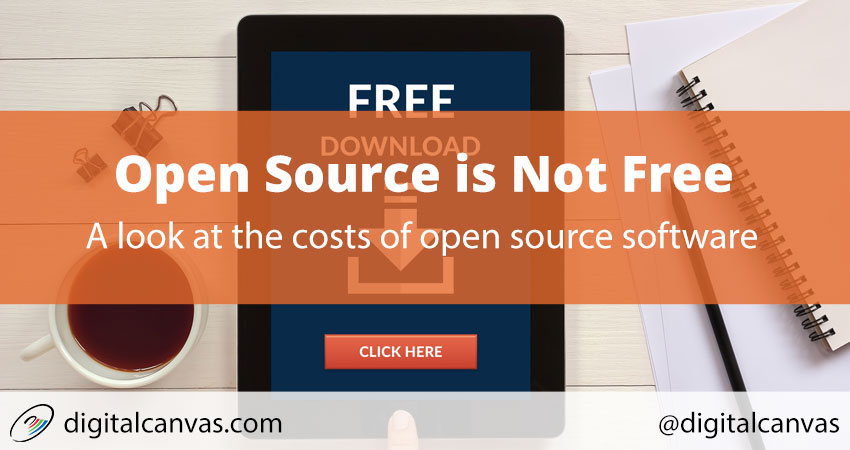There is a misconception about open source software. Although open source software like WordPress or Drupal may be downloaded for free or have a “one-click-install”, open source is not free. Other than the author’s rights and ownership, many don’t understand the costs associated with open source software. While there isn’t a direct cost for the software, it can prove to cost more than anticipated, if not carefully budgeted.
Open Source User Experience
One disadvantage of open source is the fact that it can have a steeper learning curve and may not have as polished a user interface than it’s commercial or supported counterparts. With less or no resources, there is less time to improve and polish the user experience which can leave the software lacking in user-friendly setup and polished interface.
“In this world, you get what you pay for.”
Kurt Vonnegut, Cat’s Cradle
[Tweet “‘In this world, you get what you pay for’ -Vonnegut. Open Source is not free.”]
Web Hosting
Be prepared to pay for hosting. Hosting costs need to be factored in when comparing the cost of open source and commercially supported software or a SAAS software solution. A SaaS solution takes cares of all the technical stuff and hosting for you.
Support
Open source software is usually only community supported unless you purchase a support agreement. Commercial software and SAAS solutions do provide some support plan or option. Plan accordingly and be prepared and budget for support services. Back to my point, if you purchase a support agreement, it’s not free.
“If it’s all free, who’s making money?”
Unknown
Code Quality
Reliability may be a problem when using open source. Since the source code of the software is open, this means that any developer can view, edit, and redistribute it. This creates opportunities for unskilled programmers to jeopardize code security. In my experience, it’s not the core software or larger projects that usually experience code quality issues, it’s the customizing, and free community and commercial plugins which open gaping security holes or introduce performance issues.
Version compatibility
With many open source projects, developers can contribute plugins or to the core code. This can lead to code quality or compatibility issues. All software ages, as we all do. Plugins written today may not work on future versions of the software. This can lead to upgrading complexity or inability. Plan for this and make sure to test and before an upgrade. An untested upgrade could break core functionality in the software, hopefully not on the production server.
Be Smart
Open source software may be the perfect fit for your business requirement and budget. There is nothing wrong with open source software. Just be smart. Don’t expect it to be free and consider some of the additional costs:
- configuration and installation
- user interface
- web hosting
- customization
- support
- code compatibility
- upgrade /maintenance
- version plugin compatibility
Open source software appears to be free until you consider the on-going cost to make it work the way you need it to. You may find that it is more cost effective to go with commercially supported software, a SAAS solution or seek professional help to maintain and update the software.
